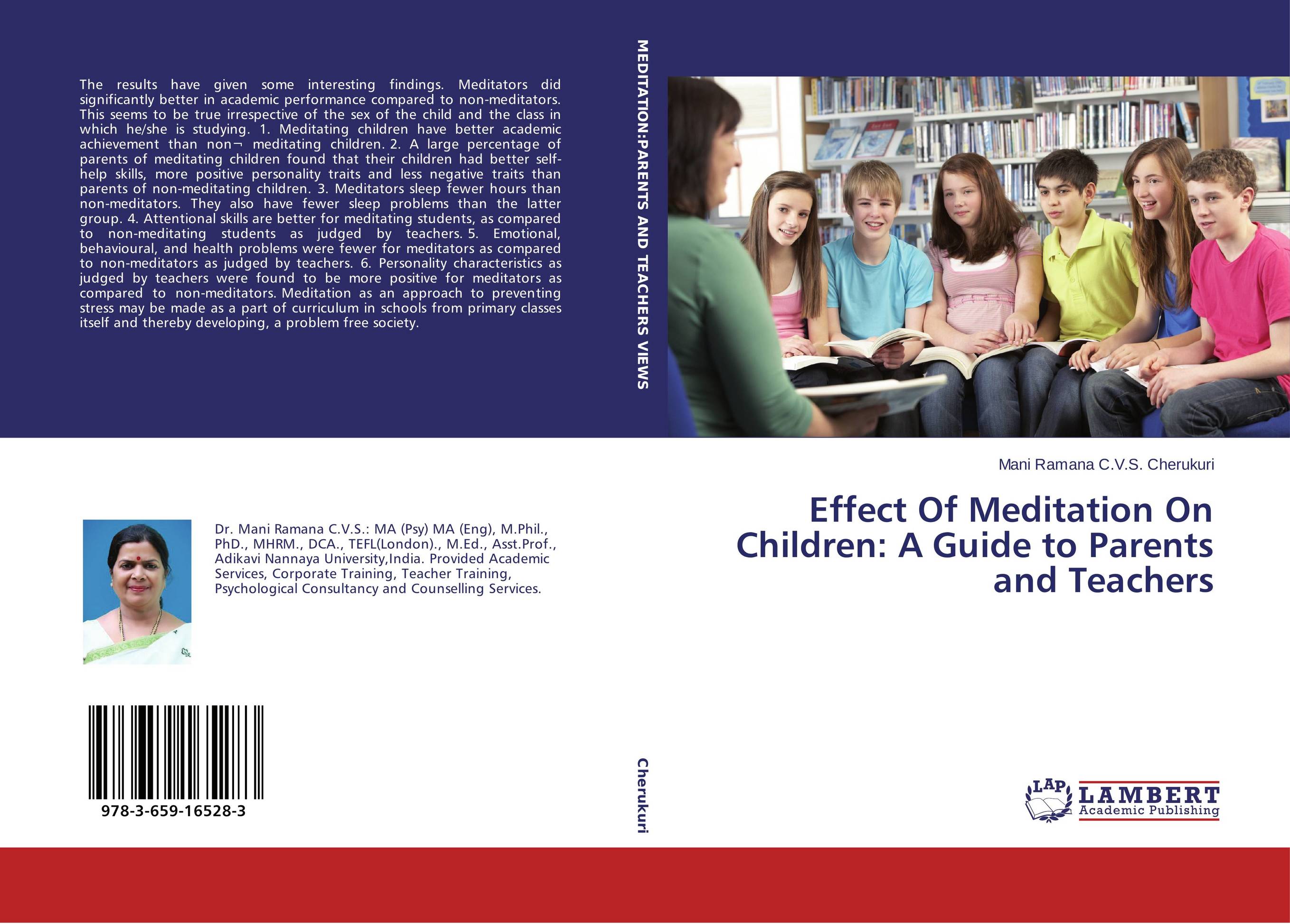| Поиск по каталогу |
|
(строгое соответствие)
|
- Профессиональная
- Научно-популярная
- Художественная
- Публицистика
- Детская
- Искусство
- Хобби, семья, дом
- Спорт
- Путеводители
- Блокноты, тетради, открытки
Effect Of Meditation On Children: A Guide to Parents and Teachers.

В наличии
| Местонахождение: Алматы | Состояние экземпляра: новый |

Бумажная
версия
версия
Автор: Mani Ramana C.V.S. Cherukuri
ISBN: 9783659165283
Год издания: 2014
Формат книги: 60×90/16 (145×215 мм)
Количество страниц: 184
Издательство: LAP LAMBERT Academic Publishing
Цена: 43101 тг
Положить в корзину
| Способы доставки в город Алматы * комплектация (срок до отгрузки) не более 2 рабочих дней |
| Самовывоз из города Алматы (пункты самовывоза партнёра CDEK) |
| Курьерская доставка CDEK из города Москва |
| Доставка Почтой России из города Москва |
Аннотация: The results have given some interesting findings. Meditators did significantly better in academic performance compared to non-meditators. This seems to be true irrespective of the sex of the child and the class in which he/she is studying. 1. Meditating children have better academic achievement than non¬ meditating children. 2. A large percentage of parents of meditating children found that their children had better self-help skills, more positive personality traits and less negative traits than parents of non-meditating children. 3. Meditators sleep fewer hours than non-meditators. They also have fewer sleep problems than the latter group. 4. Attentional skills are better for meditating students, as compared to non-meditating students as judged by teachers. 5. Emotional, behavioural, and health problems were fewer for meditators as compared to non-meditators as judged by teachers. 6. Personality characteristics as judged by teachers were found to be more positive for meditators as compared to non-meditators. Meditation as an approach to preventing stress may be made as a part of curriculum in schools from primary classes itself and thereby developing, a problem free society.
Ключевые слова: Reading, School, parents, Children, Personality, Academic Achievement, Groups, Sex, Perception, Significance, Teachers, Meditation, dreams, attention, girls, adjustment, Gender differences, Lying, age, Checklist, academic difficulties, Independent, parents perceptions, Absenteeism, percentage, Behavioral Problems, boys, low achievement, Health problems, PRIMARY SCHOOL CHILDREN, teachers perceptions, TM, dizziness, academic problems, Verbal Aggression, self help skills, sleep time, learning disorders, school refusal, teacher related factors, Transcendental Meditation, mantra, sleep problems, non-meditators, emotional problems, emotional adjustment, health difficulties, attention habits, children problem checklist, behaviour problem checklist, Personality characteristics.Specific difficulties in academic activities, difficulty in writing, difficulty in arithmetic, forgetfulness and poor memory, difficulty in languages, poor attention, distractaibility, inability to sit in one place, always moving around, acting without thinking, often interrupting others games, Maharishi Mahesh Yogi, His Holliness Maharishi mahesh Yogi, student refusing to come to school and staying back at home for duration of weeks and months, worried, anxious, and nervous, shy and timid, fearful of people, animals and situations, clinging, being easily depressed, and dull, being unusually cheerful, happy, daydreaming, being reserved and very quiet (withdrawn), doing particular things over and over again, loss of interest in play and daily activities, moving and responding unusually slowly, indulging in stealing cheating, dependable, trusting, trustworthy, easy to manage, aggressiveness, are rated. Aggression could be verbal in nature relating to scolding, shouting etc, or could be physical such as fighting, pushing, beating, complaints of dizziness, or giddiness, aches and Pains, appearing to be tired, stomach ache, fainting spells, jerky movements and, unconsciousness any time (not due to epilepsy), complaining of pulling sensation of the limbs, having chronic physical illness, children's behaviour a tool, able to dress for school, maintain books neatly, able to follow timetable, prompt in going to school and study independently, bed-wetting, sleep walking, sleep talking, breathing problems in sleep, snoring, fighting dreamsX2, t-tests and correlations tests, results and discussion, Tables, High achievement, maintaining books, time-table, physical aggression, non-significance, pulling sensation in limbs, jerky movements, aches, pains, tired look, fainting spell, interrupting, shy, timid, fearful, crying easily, worrying



